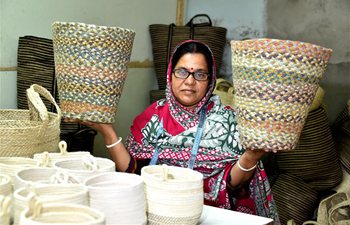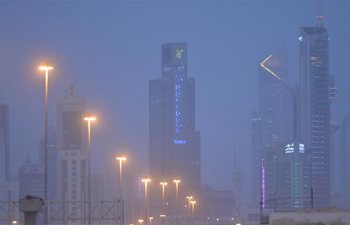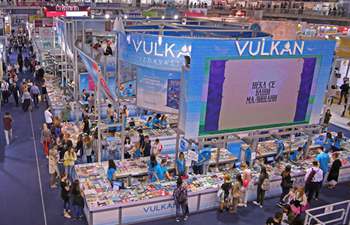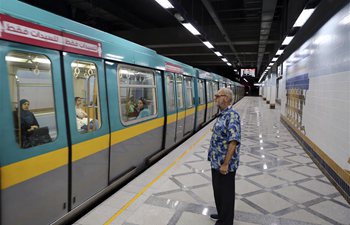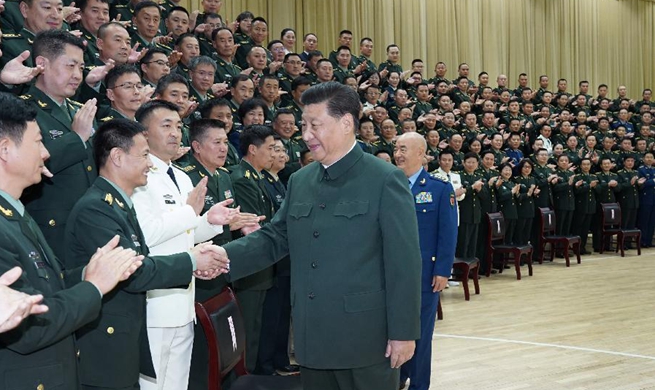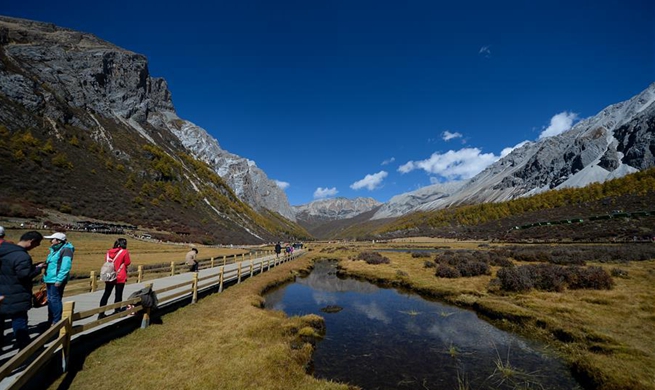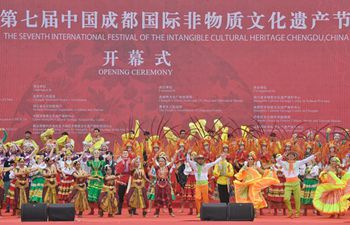by Yang Jingzhong, Guo Yang
HONIARA, Solomon Islands, Oct. 21 (Xinhua) -- Located in the west of Solomon Islands' capital Honiara not far from the city center, Dynasty Seafood Restaurant is a well-known Chinese restaurant and a top venue for local people to gather.
Not only a favorite among Chinese in the city, the restaurant is also a popular place for foreign visitors and local people to hold various events.
"I've run department stores, done import and export business and contracted the catering management right of a hotel," restaurant's owner Andrew Leung told Xinhua recently.
Leung, 58, has grey hair but sparkling eyes. He came to the Solomon Islands with his parents from Hong Kong in 1962, when he was only nine months old.
"The salary here is a little higher. Making money is easier, and life is less stressful," Leung's mother, 80-year-old Shaozhu Ou, told Xinhua.
After arriving in the Solomon Islands, Ou worked in a hotel for some time, and started doing TV antenna business with her husband.
"The market here is less developed, but very stable," she said.
That might be the reason why Leung and his friends opened a small shop in Honiara's Chinatown when he was 20 years old, selling commodities including food, clothes and small audio products. He expanded the business soon after that, and opened a branch store in the heart of the city.
Leung then began to import furniture, kitchen utensils and other large appliances, and was engaged in seafood exports at the same time. He also acquired Honiara's largest stationery company, and supplied office stationery and facilities to schools, banks and government departments.
Everything went smoothly until 1989, when Leung's store in Chinatown was looted and vandalized during a riot. In the decade since, he went through two major currency devaluations and riots, closing several stores and slashing his business dramatically.
In 2003, 40-year-old Leung entered the catering industry by contracting the catering management right of the Pacific Casino Hotel, and opened a number of Chinese and Western restaurants, bars and cafes.
Unexpectedly, just three years later, political riots broke out in the Solomon Islands. Shops and homes in Honiara's Chinatown were looted and burned again. Hundreds of overseas Chinese lost their hard-earned savings and were forced to leave their homes. Leung was not spared, and his hotel business was completely ruined.
"My business was almost completely destroyed... There were such sudden difficulties, you just have no choice," Leung said.
When the situation calmed down and life returned to normal, Leung went back to Honiara in 2012 and reopened his business in the city.
Now, Leung is running hotel, restaurant, bar and retail businesses, and attributes his achievements today to hardworking and doing things step by step.
The story of Leung's family's struggles and successes is the epitome of thousands of Chinese in the Solomon Islands.
The Chinese has begun to immigrate to the Solomon Islands since early 1900s. Since then, they have been fighting with great perseverance to break new ground in a foreign country. While pursuing their careers and establishing families there, they have also promoted local economic and social development.
In order to operate the Dynasty Seafood Restaurant, Leung hired three famous chefs from Guangzhou, China to bring in the Cantonese food culture and constantly introduce new healthy dishes.
His hard work was paid off. Many locals fall in love with Chinese food.
"They even start to buy soya sauce, chili sauce, oyster sauce for cooking at home," Leung said.
With the Solomon Islands and China establishing diplomatic ties recently, Leung's family is confident to welcome more Chinese tourists as well as witness more development in the country.
"The number of Chinese visitors coming to the restaurant begins to increase a bit, and it's the same for the hotel," Leung said.
"China is very good now, it's getting better year after year," Leung said.
"With the newly established ties, my expectation is the employment rate would rise if there's infrastructure going on."
Leung's eldest son Isaac agreed. "I think the country (the Solomon Islands) needs to change. So China will bring good changes to the country," Isaac said.
"There will be lots of developments, which is good for labor and workforce here, and create more jobs. That's what the country needs at the moment."
Growing up in the Solomon Islands, Isaac speaks English more fluently than Chinese. But he is no stranger to China.
"I have travelled to Beijing, Shenzhen, Foshan and Hong Kong," Isaac said.
"I'd love to visit China more often, so with the ties I think it'll be easier to get access to China."

